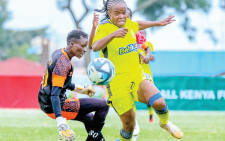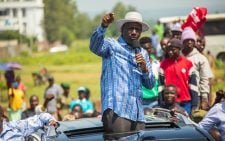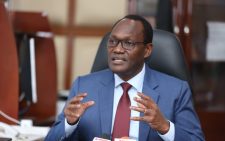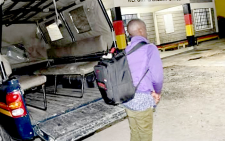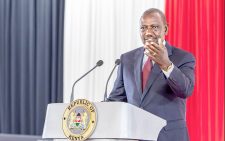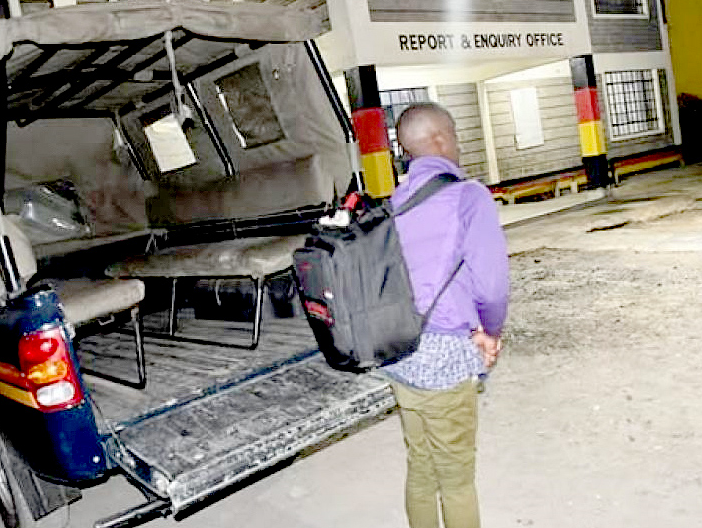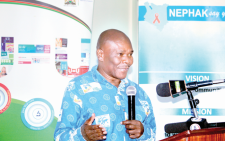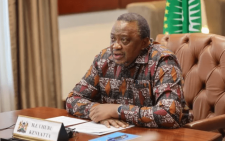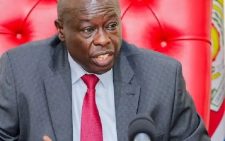Battle lines drawn ahead of Supreme Court BBI appeal
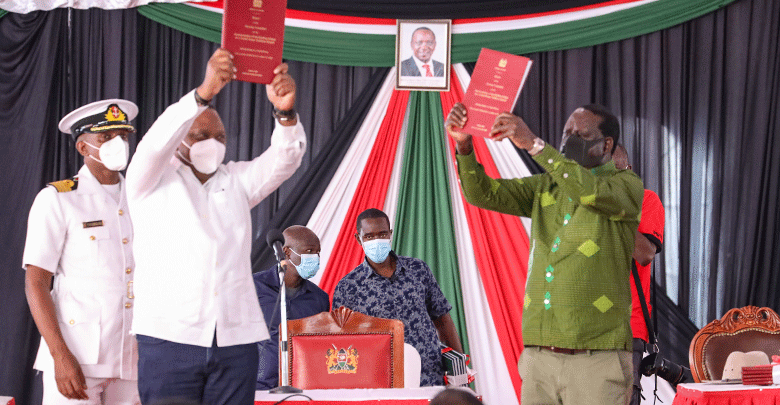
Battle lines were last evening drawn ahead of today’s commencement of the Building Bridges Initiative (BBI) appeal hearings at the Supreme Court today after the Attorney General and the electoral commission protested the limited time allocated to them to argue their cases.
The Supreme Court had issued guidelines on Friday allocating the appellants, among them the Attorney General, the Independent Electoral and Boundaries Commission (IEBC) and lawyer Morara Omoke, 45 minutes each to argue their cases.
Yesterday, the AG and the electoral body wrote to the court’s Deputy Registrar protesting that time allocation was heavily skewed in favour of the respondents.
The respondents include David Ndii, Jerotich Seii, James Gondi, Wanjiru Gikonyo, Ikal Angelei, Thirdway Alliance, Miruri Waweru and Angela Mwikali. Others are Phylister Wakesho, Muslim for Human Rights and Isaac Aluochier who will also have 45 minutes each to give their submissions.
Kihara and IEBC objected to the time allocated to the appellants, saying they have been allocated a combined time of two hours and 15 minutes as opposed to the respondents’ six hours.
“It is the Attorney-General’s humble view that even on the basis of equality of arms, the time allocated to the two sides should be equal or as near as possible equal,” reads a letter signed by Solicitor General Kennedy Ogeto.
The seven Supreme Court judges who will hear the appeal from today until Thursday are Chief Justice Martha Koome, Deputy Chief Justice Philomena Mwilu, Mohamed Ibrahim, Smokin Wanjala, Njoki Ndung’u, Isaac Lenaola and William Ouko.
Kihara argues that the issues that he will be canvassing are weighty and constitute matters of great public importance and should, therefore, be granted reasonable time to address and elaborate on the issues raised in the five grounds of appeal in order to assist the court to arrive at a just determination of the critical matters.
Thematic areas
The AG proposed that since the hearing of the appeal will take three days, the appellants should be heard on the first day, the respondents on the second day and the third day be reserved for replies to the respondents’ oral submissions.
“In the alternative, the appellants are allocated at least six hours to be shared between them or the AG be allocated an additional at least one hour and 45 minutes,” reads the letter.
The AG also wants the number of counsel allowed to appear increased from two to four so as to include two external lawyers who have been allocated two important thematic areas for argument before the court.
IEBC supported the views and the proposals highlighted by the Attorney General in his letter.
“We consider the time allocated to be grossly inadequate and humbly request for at least two hours for the 2nd appellant (IEBC) to present its case,” read the letter signed by Eric Gumbo.
The IEBC case will be led by former AG Githu Muigai alongside Gumbo, Kioko Munyithya and Ngugi Advocates.
“In the circumstances we would request the court to allow IEBC at least six counsel to appear before the court considering the voluminous records filed,” reads the letter.
Veteran lawyer John Khaminwa, who is representing Kituo Cha Sheria and the Kenya Human Rights Commission (KHRC), also wrote to the Supreme Court urging it to be more accommodating of all parties that wish to make their oral arguments.
“The court should give itself ample time to interact not only with the documents filed in court but also counsel on record as they represent different opinions and constituencies,” he said in the letter.
Basic structure
Khaminwa noted that there was no urgency in the disposition of the appeal and, therefore, time should not be of greatest concern in hearing the matter.
The Supreme Court framed seven issues which parties are expected to canvas.
Among the issues the Apex Court will hear is whether the Basic Structure Doctrine is applicable in Kenya and if so, the extent of its application and whether it can only be altered through the primary constituent power and what constitutes the primary constituent power.
The judges will also hear submissions on whether the President can initiate changes or amendments to the Constitution and whether a constitutional amendment can only be initiated by Parliament through a parliamentary initiative or through a popular initiative.
Another issue the judges identified is whether the end Schedule Kenya Constitution amendment Bill, 2020 (BBI BILL) was unconstitutional.
Referendum question
The fourth issue the judges will arbitrate over is whether civil proceedings can be instituted against the President or a person performing the functions of the Office of the President during his or her tenure of office with regard to anything done or not done contrary to the Constitution.
The fifth issue will be about Public Participation, especially the role of IEBC under Article 57(4) of the Constitution and whether there was public participation in respect to the BBI Bill.
Another matter is interpretation of Articles 88 & 250 of the Constitution with respect to the composition and quorum of IEBC and interpretation of Article 257(10) of the Constitution whether it requires that all specific proposed amendments to the Constitution should be submitted as separate and distinct referendum questions.
